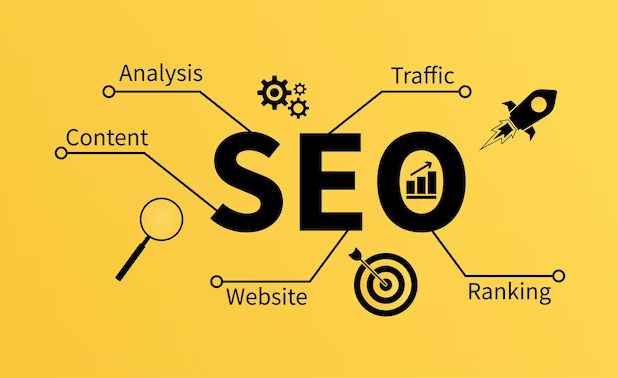The Digital Marketing Landscape
Digital marketing encompasses a wide range of strategies and tactics aimed at promoting products, services, or brands through digital channels. These channels include but are not limited to search engines, social media platforms, email marketing, content marketing, influencer collaborations, and more. Unlike traditional marketing, digital marketing offers the advantage of real-time engagement and measurable results, enabling businesses to make data-driven decisions and optimize their campaigns for better performance.
Key Components of Digital Marketing
- Search Engine Optimization (SEO): SEO is the practice of optimizing a website’s content and structure to improve its visibility in search engine results. By ranking higher in relevant search queries, businesses can attract organic traffic and increase their online visibility.
- Social Media Marketing: Social media platforms like Facebook, Instagram, Twitter, LinkedIn, and TikTok provide avenues for businesses to connect with their audience, share valuable content, and foster customer engagement. Creative and strategic content can go viral, exponentially increasing brand reach.
- Content Marketing: Creating high-quality and relevant content, such as blog posts, videos, infographics, and eBooks, can establish a business as an authority in its industry. This not only attracts organic traffic but also nurtures customer trust and loyalty.
- Email Marketing: Despite being one of the oldest digital marketing techniques, email marketing remains highly effective. Sending targeted and personalized emails to subscribers can drive conversions and keep customers informed about promotions, news, and updates.
- Pay-Per-Click Advertising (PPC): PPC involves placing ads on search engines and other platforms, and advertisers pay a fee each time their ad is clicked. This model ensures that businesses only pay for actual engagement, making it cost-effective.
- Influencer Marketing: Collaborating with influencers who have a significant following in a particular niche can help businesses tap into a ready-made audience, building trust through the influencer’s endorsement.
Benefits of Digital Marketing
- Global Reach: Digital marketing breaks down geographical barriers, allowing businesses to reach a global audience without the need for physical presence.
- Targeted Audience: With sophisticated targeting options, businesses can focus their efforts on specific demographics, ensuring that their marketing messages resonate with the right people.
- Measurable Results: Digital marketing provides data on various metrics such as clicks, conversions, engagement rates, and more. This data-driven approach enables businesses to refine their strategies for better outcomes.
- Cost-Effectiveness: Compared to traditional marketing methods, digital marketing often offers a higher return on investment due to its ability to precisely target audiences and optimize campaigns.
- Real-Time Engagement: Businesses can engage with customers in real time, addressing concerns, providing support, and building relationships that foster loyalty.
Digital Marketing Strategies for Success
- Create Compelling Content: Valuable and engaging content is at the core of every successful digital marketing strategy. Focus on producing content that educates, entertains, or solves problems for your target audience.
- Leverage Social Media: Identify the platforms your audience frequents and tailor your content accordingly. Engage with users, respond to comments, and participate in relevant conversations.
- Optimize for Search Engines: Implement effective SEO practices to ensure your website ranks well in search engine results. This involves optimizing keywords, improving website speed, and enhancing user experience.
- Utilize Data Analytics: Regularly analyze data to understand what’s working and what’s not. Use this information to refine your strategies and make informed decisions.
- Stay Updated: The digital marketing landscape is ever-evolving. Stay informed about the latest trends, tools, and technologies to keep your strategies current and effective.
Conclusion
Digital marketing has transformed the way businesses interact with their audience, enabling them to leverage the power of technology to drive growth, build brand loyalty, and achieve their goals. By embracing the diverse strategies and platforms available, businesses can navigate the complexities of the digital age and emerge as industry leaders in the modern business landscape.




